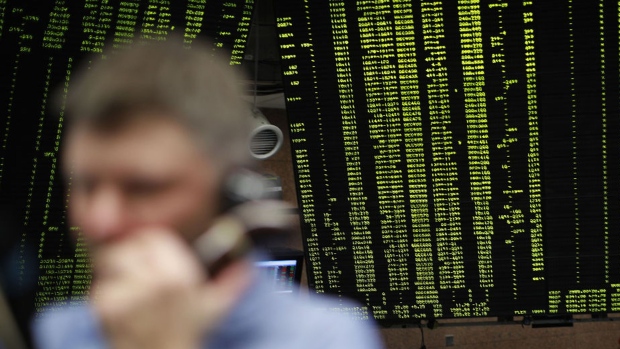Dec 21, 2023
The Hottest Options Trade in S&P 500 Is Now Spreading to Smaller Stocks
, Bloomberg News

(Bloomberg) -- Investors in small-cap stocks will soon have wider access to one of this year’s hottest — and most controversial — options trades.
Cboe Global Markets Inc., the world’s largest options exchange, is adding Tuesday and Thursday expirations for so-called zero-day options linked to the Russell 2000 Index. Options that expire in 24 hours or less are currently only offered on Mondays, Wednesdays and Fridays for that index, but are available every trading day for the S&P 500.
The new offering will allow options traders to replicate the daily strategies they are already putting to use with other indexes, according to Catherine Clay, executive vice president and global head of derivatives at Cboe. “When they find what was working in S&P 500, they want to do the same in Russell 2000,” Clay said in an interview.
Trading in zero-day options tied to the S&P 500 soared to a record this year, and the exchange is looking to build on that success. But the surge in demand has come with controversy. Concern has mounted that the product increases market volatility, and some traders blamed so-called ODTE options for Wednesday’s rally-ending slump in US equities.
When volume started increasing in zero-day options, there was a lot of fear, Rob Hocking, head of product innovation at Cboe, said. But Cboe spent time educating market participants, and “getting the story out about why the products are used and how,” he said.
The expanded access applies to the Russell 2000 Index and Mini-Russell 2000 Index options and goes into effect on Jan. 8. Rival CME Group Inc. launched E-mini S&P 500 weekly options last year and expanded them to cover every day of the week.
Options volume has been surging, as has the popularity of short-dated investing products. In response, Cboe already expanded S&P 500 options products that expire every day of the week, adding Tuesdays and Thursdays in the first half of 2022. That followed the success of Cboe’s weekly options expiring Mondays, Wednesdays and Fridays.
The zero-day options products have lured investors at a time of growing unease, allowing them to hedge every market move from a jobs report to gross domestic product numbers. Offering more days for expiration allows traders to get in and out of positions on a faster time frame. Traders also settle their position every day, instead of carrying risk overnight.
But some analysts, including JPMorgan Chase & Co.’s Marko Kolanovic, have warned that the popularity of the product brings with it the potential for market shocks. Cboe has said there’s scant evidence that the buying and selling of the derivatives is destabilizing the underlying market, citing a study it conducted earlier this year.
The Russell 2000 Index is the benchmark for measuring the performance of US small-cap equities. By adding Tuesday and Thursday expiries, investors will be able to manage their exposure to US small-cap equities and spread their investment strategy around market events with more precision.
The Russell 2000 has similar features as the S&P 500, and both are cash-settled indexes, Hocking said. “We want to be able to offer the same optionality in different benchmarks.”
Retail investors are flocking to options, which give the holder the right to buy or sell a security, as a relatively cheaper way to bet on stocks. Institutional investors are taking advantage too, as options can offer a less expensive way to limit losses in times of volatile markets.
Total US options volumes are expected to hit a new annual high by the end of 2023, surpassing the 10.3 billion contracts traded in 2022 and marking the fourth consecutive year of record-breaking volume, according to Cboe data that encompasses the entire marketplace. That growth is thanks, in part, to trading in short-dated US index options.
Options contracts expiring in one day or less account for approximately 36% of total US index options flow in 2023, compared to 15% in 2020, Cboe data shows. For options tied to the Russell 2000 Index, trading in contracts expiring in a day or less make up 17% of overall volume. Clay and Hocking expect that volume to increase when Tuesdays and Thursdays are added to the mix.
“There is a trend to more granular, frequent exposure in the industry,” Hocking said. “So we are exploring more ways to respond to that demand.”
--With assistance from Lu Wang and Isis Almeida.
(Updates with CME addition of Tuesday, Thursday expiration in sixth paragraph.)
©2023 Bloomberg L.P.






